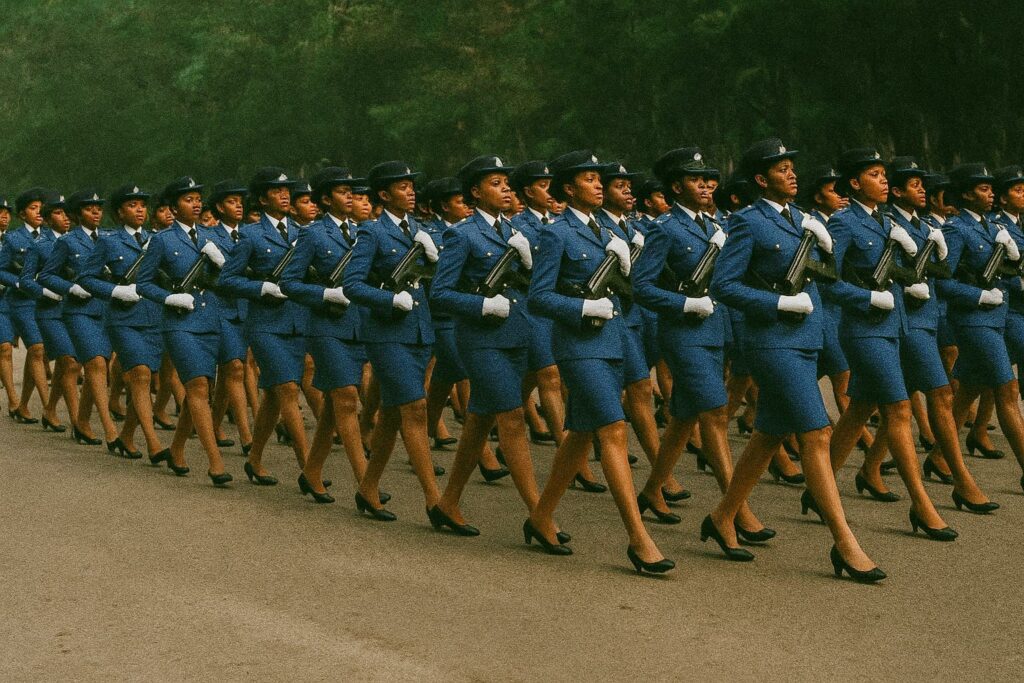A celebration choreographed for reassurance
Under a merciless June sun, the esplanade of Brazzaville’s President Alphonse Massamba-Débat Stadium became a theatre of precisely timed salutes and impeccably aligned epaulettes. The 64th anniversary of the Forces Armées Congolaises (FAC) and the National Gendarmerie offered choreography that, in the words of Defence Minister Charles Richard Mondjo, was designed to project “honour, devotion and rigorous protection.” Spectators saw a sixteen-member sample of the Force Publique decorated for merit, yet diplomats present quietly noted that the medal ceremony, though sincere, also served as a morale boost ahead of an election season already casting a long administrative shadow (Jeune Afrique, 24 June 2025).
Historical continuity and the burden of precedent
Since its founding by order of President Fulbert Youlou in 1961, the FAC has oscillated between professional ambitions and political entanglements. Episodes of military involvement in politics—most notably the 1997 civil conflict that returned Denis Sassou Nguesso to power—still inform public memory and external perceptions. The anniversary speeches therefore leaned on a narrative of institutional maturation, emphasising deployments to UN and AU missions in the Central African Republic, Mali and South Sudan as tokens of international credibility (UN Peacekeeping Statistics, 2025). Yet regional analysts caution that operational experience abroad does not automatically guarantee neutrality at home, particularly in countries where chains of command remain closely intertwined with the executive (International Crisis Group, May 2024).
Securing the 2026 ballot: logistical arithmetic and political chemistry
Minister Mondjo’s assertion that the Force Publique will ensure the presidential election unfolds in “peace and serenity” concealed the scale of the undertaking. The roll-out of a revised administrative map—reducing fifteen departments to twelve—has complicated the projection of security forces across polling centres. According to interior ministry estimates obtained by local daily Les Dépêches de Brazzaville, 11,300 gendarmes and 4,800 soldiers will be required for static protection alone, a 17 percent increase over the 2021 legislative polls. Funding these deployments amid fiscal constraints induced by lower oil revenues remains a delicate calculus in cabinet discussions (RFI, 22 June 2025).
From parade ground to doctrine laboratory
Beyond numerical sufficiency, Mondjo’s roadmap sketches an ambitious integration of the army, gendarmerie and police through shared doctrine hubs and pooled logistics. The project aims to dilute inter-service rivalries by institutionalising common training cycles at the Marien Ngouabi Military Academy and by digitising armouries to curb ammunition leakage. While welcomed by Western defence attachés, such convergence requires legislative backing that the governing majority has yet to table. Officers interviewed off-record concede that without clear budget lines and a joint promotions board, the rhetoric of synergy risks remaining confined to anniversary podiums.
Neighbourhood turbulence and the regional security equation
Congo’s internal preparations unfold against widening concentric circles of insecurity. The eastern flank of the Democratic Republic of Congo continues to host militant movements whose illicit trade routes extend into Sangha and Likouala. To the north, the volatile Central African Republic has requested additional FAC engineers for road protection along the Oubangui. Meanwhile, Brazzaville’s pledge to contribute a company to the Southern African Development Community Mission in Mozambique, though symbolically potent, stretches already thin human resources. The FAC’s heavy reliance on Soviet-era armour and a modest airlift capacity limit its ability to respond simultaneously to domestic electoral contingencies and external calls for solidarity, a concern voiced by regional think-tank Institute for Security Studies (ISS, April 2025).
Re-knitting the social contract: civilian confidence as force multiplier
Perhaps the most understated yet crucial component of Mondjo’s agenda is the promise to strengthen the army-nation bond through rural road building and field clinics. Congo’s human development index ranks 153rd worldwide; access to basic services remains the yardstick by which many citizens judge state legitimacy. Pilot projects in Plateaux Department, where engineer regiments have reopened 67 kilometres of feeder roads since January, garnered rare praise from opposition leader Mathias Dzon, who called them “small but tangible dividends of peace.” Whether such outreach can mollify urban youth disillusioned by unemployment—and thereby reduce the risk of protest-driven flashpoints during the campaign—will test the FAC’s evolving doctrine of comprehensive security.
Early verdict: between symbolism and substance
Anniversary ceremonies excel at symbolism, and Congo’s 64th certainly met that brief. Yet the passage from pageantry to performance is measured in patrols, polling-station discipline and public perception, not in drumrolls. Success in 2026 will depend on whether reforms pencilled into ministerial speeches are translated into enforceable decrees, adequately financed and transparently overseen. For now, the polished boots and synchronised salutes of Brazzaville’s parade offer reassurance, but experienced observers know that the republic’s real stress test begins as soon as the last brass note fades.

